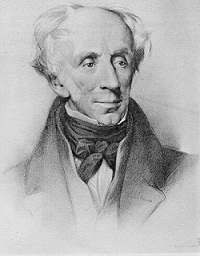 Answer: Wordsworth shows a close relation between Man and Nature. As a pantheist he believes that the same divine Sprit governs and flows through human beings and Nature. The realization that the Spirit of God pervades the objects of Nature as well as human beings has enabled Wordsworth to bring Man and Nature closer to each other. In fact, Wordsworth’s aim is to establish a harmony between Man and Nature through his nature poems. ‘Tintern Abbey’ is a masterpiece which combines noble poetry with noble philosophy.
Answer: Wordsworth shows a close relation between Man and Nature. As a pantheist he believes that the same divine Sprit governs and flows through human beings and Nature. The realization that the Spirit of God pervades the objects of Nature as well as human beings has enabled Wordsworth to bring Man and Nature closer to each other. In fact, Wordsworth’s aim is to establish a harmony between Man and Nature through his nature poems. ‘Tintern Abbey’ is a masterpiece which combines noble poetry with noble philosophy.
Wordsworth believes that the company of Nature gives joy to the human heart. In “Tintern Abbey” he expresses the joy, he feels on revisiting the banks of the river Wye, beautiful natural scenery. The actual sight of this scene not only pleases his eye, the very memory of this scene has in the past soothed and comforted his mind, hurt by the cruelty and selfishness of man. The poet has gained ‘sweet sensations’ from these objects of Nature in hours of weariness’. The tender feelings arising out of this sweet memory have prompted him to do little acts of kindness and love.
The poet has derived another benefit of a lofty nature from these beautiful scenes on the Wye. He had acquired a happy spiritual temper of mind which helps him understand the mysteries of the world. He calls this state of the mind “a serene and blessed mood” or a kind of meditation when all the physical functions are suspended. In this mood spiritual communion with Nature is possible. When a man has this communion with Nature, he sees harmony in the whole Universe.
[adToAppearHere]
Nature has a great role in shaping and developing human mind and this has been aptly explained by Wordsworth in Tintern Abbey’. While revisiting the banks of the river Wye in 1798 after a gap of five years the poet reviews his past days in childhood, evaluates the present moments and anticipates the future. As a boy he loved Nature purely for the sake of its physical beauty and had ‘coarser pleasures’ and ‘glad animal movements’ in the midst of beautiful surroundings. In his youth he loved Nature sensuously and passionately, and this was marked by ‘dizzy raptures’ and ‘aching joys’. In his maturity Nature brought in him the awareness of the ‘still sad music of humanity’. The knowledge of human misery made him sympathetic and noble, and this led him to love mankind. Now he has developed a philosophic mind to understand the inner meanings of the objects of Nature. He feels the sublime Presence, the existence of God in all things of Nature.
Standing on the bank of the river ‘Wye’ the poet realizes the great influence of Nature on human mind. The beautiful scenes and objects always charm his eyes. Their colors and their forms satisfy his spiritual thirst, and induce in him tender feelings of kindness and love, that is why, he frequently visits the beautiful sights or goes on a walking tour through lovely valleys and hilly areas. He regards Nature as a great moral Teacher of man, his Guardian and Nurse.
To conclude, we can say that Wordsworth through his nature poems seeks to establish a harmony between man and Nature. According to him, human beings who grow up in the lap of Nature become perfect in all respects.




